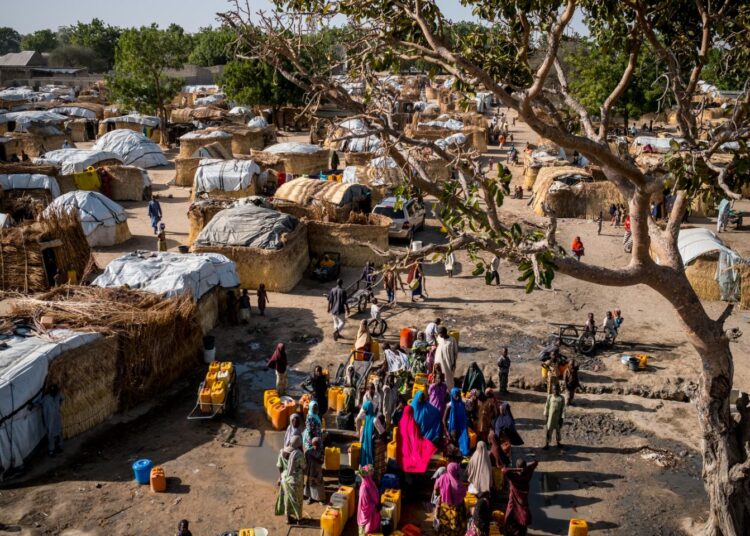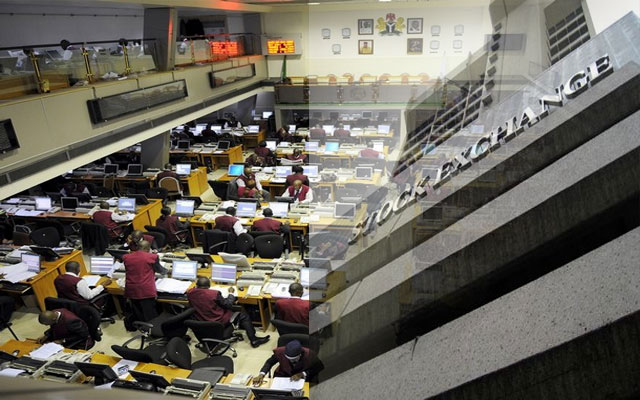Tanko Mohammed
With more than 24,000 deaths and damage to infrastructure in 13 years, insurgency in North East Nigeria has thrown more than 8.4 million people into despair in 2022, requiring urgent humanitarian intervention.
Aside the deaths and people living in despair, at least six million people had been displaced and were yet to be relocated to their homes in three of the six north states, including Borno, Adamawa and Yobe as jihadists and military engage in intensive duel.
Insurgency spearheaded by Boko Haram in 2009 and later Islamic State West Africa Province (ISWAP), has caused serious economic doldrums to more than 40 million people on the fringes of Lake Chad, including those in neighbouring Chad, Cameroon and Niger Republics.
Education, electricity, Agriculture and fishing in the Lake Chad region had been decimated making life more difficult requiring urgent international assistance to complement efforts of the countries in the region, including Nigeria, which are in dire straits.
The United Nations Office for the Coordination of Humanitarian Affairs on April 8, 2022, issued a statement alerting the world of that the number of acutely malnourished children and women in the region is expected to significantly increase in 2022.
More than a billion dollars is needed to deliver life-saving food security and nutrition, Mr Matthias Schmale, UN Humanitarian Coordinator for Nigeria, stated.
“After averting catastrophe in 2021, danger looms again for the people of north-east Nigeria if efforts are not sustained,” he said.
Schmale said that many women, men, boys and girls are most effected by the conflict in the northeast, adding that 2.2 million people were internally displaced last year alone.
“For many people in the north-east where conflict has raged for 13 years we are now seeing the multiple displacements of people who are forced to leave behind their homes and livelihoods years ago.
“A disturbing aspect of this conflict is that there are thousands of children who have never known peace in their lifetime.
“Many children in the northeast have been born into a violent, insecure environment deprived of safety, education, health care and protection that is the right of each child.
“We must continue to explore durable solutions to decongest some of the long standing camps and to care for both immediate needs and long term resilience of the people who are displaced,” he said.
It reported that in 2021 humanitarian actors quickly responded to stave off a potentially catastrophic food security and nutrition crisis, resulting largely from protracted conflict.
Latest round of the Cadre Harmonisé (CH) (the unified tool for consensual analysis of acute food and nutrition insecurity in the Sahel and West African), reported further deterioration of the food security situation in Borno, Adamawa and Yobe states in 2022, where more than 8.4 million people require humanitarian assistance and protection.
According to the Integrated Food Security Phase Classification (IPC) acute malnutrition analysis (IPC AMN) from September 2021 – August 2022, says the number of acutely malnourished children and women is expected to significantly increase in the year 2022 and further worsen in the lean season, it said.
It said: “These are anticipated to be the highest levels observed since the emergency period of 2016. The analysis indicates that 1.74 million children aged 6-59 months will need treatment for acute malnutrition in 2022.
“Deteriorating food consumption patterns are contributing to the worsening food security and nutrition situation.’’
The March 2022 CH analysis showed severe consumption deficits, extending beyond Borno State, and the February 2022 Mobile Vulnerability Analysis and Mapping (mVAM) revealed that 42.1% of households in BAY states had insufficient food intake, as compared to 37.8% at the same period in 2021.
It is reported that $1.1 billion is needed to support 5.5 million people and $351 million is urgently needed to deliver life-saving food security and nutrition assistance to the most affected people.
United Nations High Commissioner for Refugees (UNHCR) has begun assisting Borno state technically in providing succour for Internally Displaced Persons (IDP) with the closure of some camps hosting 17,300 persons.
UNHCR said in a statement that six camps have been closed since January 2022 and the remaining five camps is going to affect an estimated 60,000 IDPs.
Through its monitoring of spontaneous refugee returnees from Chad, Cameroon, and Niger, the UNHCR and the Nigerian Immigration Service registered some 4,100 individuals in some local councils in Borno State.
Non-state armed groups (NSAGs) continued to attack security forces and civilians in North East Nigeria.
In Borno State, violence, including armed attacks, use of Person-Borne Improvised Explosive Device (PBIED)/IED, abductions, illegal vehicle checkpoints, crimes, were reported, as NSAG members continued to surrender to government forces.
The World Food Programme (WFP) also reports that in Borno, Yobe and Adamawa states in northeast Nigeria, conflict is affecting the lives and livelihoods of millions of people.
It said that 4.4 million people are facing acute hunger and 320,000 children are suffering from acute malnutrition.
“Violence and insecurity are causing mass movements of people, with over 2 million living in camps or host communities within Nigeria and tens of thousands seeking refuge in neighbouring countries, including Cameroon, Chad and Niger.
“Many of those who left the country are now returning, needing food and shelter.’’
It said that joint efforts by the Nigerian Government and the humanitarian community, including the World Food Programme (WFP) have managed to stabilize an extremely serious food security situation.
The World Food Programme (WFP) also reports it is scaling up its food and nutrition support to assist 1.9 million people by the end of the year in Borno, Adamawa and Yobe states.
WFP uses either food or cash transfers to support displaced people living in camps or with host communities, as well as vulnerable host populations.
Since the start of the conflict in 2009, more than 120,000 people have been killed, more than 4,000 people abducted and 1.7 million remain displaced, most of them in Borno State, UNICEF said in its report.
Many others caught up in the conflict have experienced brutal violence, lost family, friends and homes, lived with acute and sustained levels of stress in poor conditions.
Many communities are torn apart and had little or no access to life-saving services such as health and education and emphasised the need for robust humanitarian community life-saving assistance which can help to stabilize living conditions for millions of people, reducing levels of mortality and morbidity.
“Ongoing threats of attacks by armed groups and military restrictions – particularly restrictions on population movements – continue to be obstacles to trade, livelihoods and markets, leaving a substantial proportion of the civilian population dependent on humanitarian assistance. The humanitarian need is ongoing and significant.
“Almost nine out of ten displaced people come from Borno, and the state also hosts nearly 8 out 10 (78 per cent) internally displaced persons (IDPs). Further displacements are expected to occur as military operations and hostilities continue’’, UNICEF reported.
As the military scales up offensive against insurgents, the United Nations (UN) said on April 7, 2022 that the humanitarian community and the government had inaugurated the 2022 Humanitarian Response Plan for the north-eastern part of Nigeria.
Stéphane Dujarric, spokesman for the UN Secretary-General Antonio Guterres disclosed, that the plan needs $1.1 billion to provide critical aid and services to 5.5 million people impacted by the conflict in Borno, Adamawa, and Yobe states.
In January, the Under-Secretary-General for Humanitarian Affairs and Emergency Relief Coordinator (USG/ERC), Martin Griffiths, visited Nigeria to see first-hand the humanitarian situation and response in the north-east.
Griffiths was also in Nigeria to raise international awareness about the deteriorating humanitarian situation and bring attention to the ongoing regional conflict affecting the Lake Chad basin.
Nigeria’s Minister of Humanitarian Affairs, Disaster Management and Social Development, Ms Sadiya Farouq, said over the years the humanitarian community and the Nigerian government had provided lifesaving support to millions of affected people in Borno, AdamawaAdamawa, and Yobe states.
Farouq said in spite of the affected population showing immense resilience, the region was facing a deteriorating protection crisis that disproportionately affects women and girls who are at risk of gender based violence and sexual abuse.
According to her, millions of people struggle to have their basic needs met and the fluctuating food prices have further destabilised the food security situation in the country.
Meanwhile, the UN Under-Secretary-General for Humanitarian Affairs and Emergency Relief Coordinator, Martin Griffiths, has pledged to support Nigeria to help rebuild the lives of those affected by violence in the Northeast.
The UN humanitarian affairs chief made the pledge at the end of his four-day visit to Nigeria, and reported that the UN would do everything to support the country.
According to him, UN will help Nigeria to build the lives of vulnerable families who have been impacted by violence in the Northeast.
He was also in Nigeria to raise international awareness about the deteriorating humanitarian situation and bring attention to the ongoing regional conflict affecting the Lake Chad basin.
The UN relief chief met with Nigeria’s Vice-President Yemi Osinbajo; the Chief of Defence Staff, Lt-Gen Lucky Irabor; and some government officials, including Governor Babagana Zulum of Borno State.













